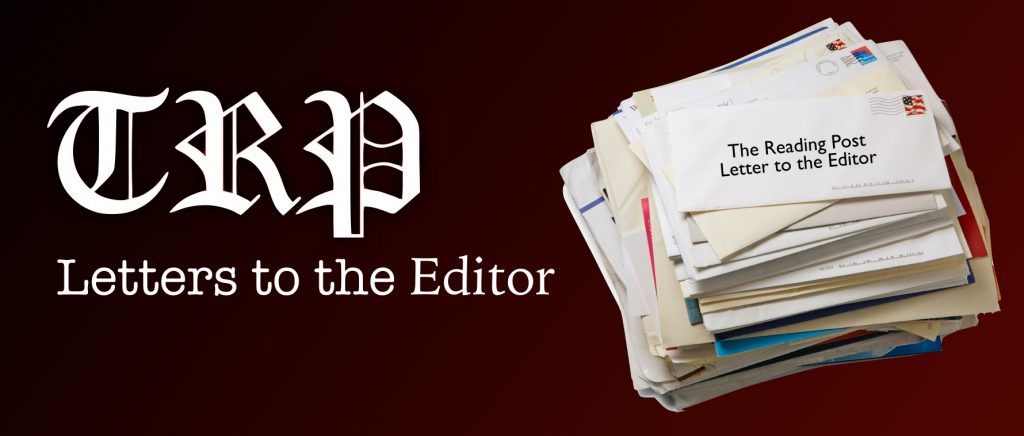
The Reading Post accepts Letters to the Editor. All letters must be signed. The Reading Post reserves the right to edit or not publish any letters received. Letters do not represent the views or opinions of the Post. editor@thereadingpost.com
Dear Registered Voters of Reading Massachusetts,
Regarding the upcoming election for the Board of Library Trustees, it has come to my attention that candidates Michael Terry and Brian Curry support banning the book Queer Gender by Maia Kobabe. Books are written for everyone to read. Banning a book is taking away people’s right to learn. The first amendment states that in the United States of America, “Congress shall make no law respecting an establishment of religion or prohibiting the free exercise thereof; or abridging the freedom of speech”. A book is an author’s way of expressing what they think is important and would be of value to others. Therefore, banning a book would go against our first amendment right to freedom of speech.
The book Queer Gender is about a young child discovering their sexuality as they grow into young adulthood. While this book does contain mature content and graphic images, this book shares many of the same ideas as countless others such as the book Are You There God? It’s Me, Margaret by Judy Blume. Both books are about young kids growing up and discovering who they are. The book Are You There God? It’s Me, Margaret has been in our library for many years with no complaints, even though it also contains mature content and graphic images. Both books contain mentions of sex and romantic attractions between two children. Although in Queer Gender it talks about gay sex and same sex attractions along with talk of transgender individuals and they/them pronouns, while in Are You There God? It’s Me, Margaret the main character is a cisgender female, and the book talks about sexual attractions between a male and a female. No one has had any issues with this book, and many like it, that have been in the public library for years. It seems as soon as a book that shares the mind of a queer child/teenager is offered then it’s an issue.
Often reading about something that you don’t closely relate to can feel weird or uncomfortable, especially when it contains talks of sexual feelings that you as an individual may not experience. However, in a world full of so many people we are not “one size fits all”, every single person is entitled to their own feelings, beliefs, and sexuality. Someone that relates closely to the book may in fact find it comforting to know they are not alone in their feelings and questions. It can help them to feel they belong and that any confused thoughts they are having are real and valid. It can also help teach others that don’t already relate to better understand what their peers are going through. In Reading we have worked and continue to work very hard on racial diversity and making sure that people of all races are included and feel welcomed here. I don’t understand why we then find the need to discriminate against the LGBTQ+ community in the banning of a book that has one of their members as the author and lead character. Books are meant to teach, guide, relate, motivate, and empower their readers. Banning books is only harming the next generation.
I will leave you with this quote from Chimamanda Ngozi Adichie, which was written to describe Harper Lee’s novel to Kill a Mockingbird. “Sometimes novels are considered “important” in the way medicine is – they taste terrible and are difficult to get down your throat but are good for you. The best novels are those that are important without being like medicine; they have something to say, are expansive and intelligent but never forget to be entertaining and to have character and emotion at their center”. I encourage you to read Gender Queer and you may also find it to be important without being like medicine.
Name withheld
Freshman at Reading Memorial High School
